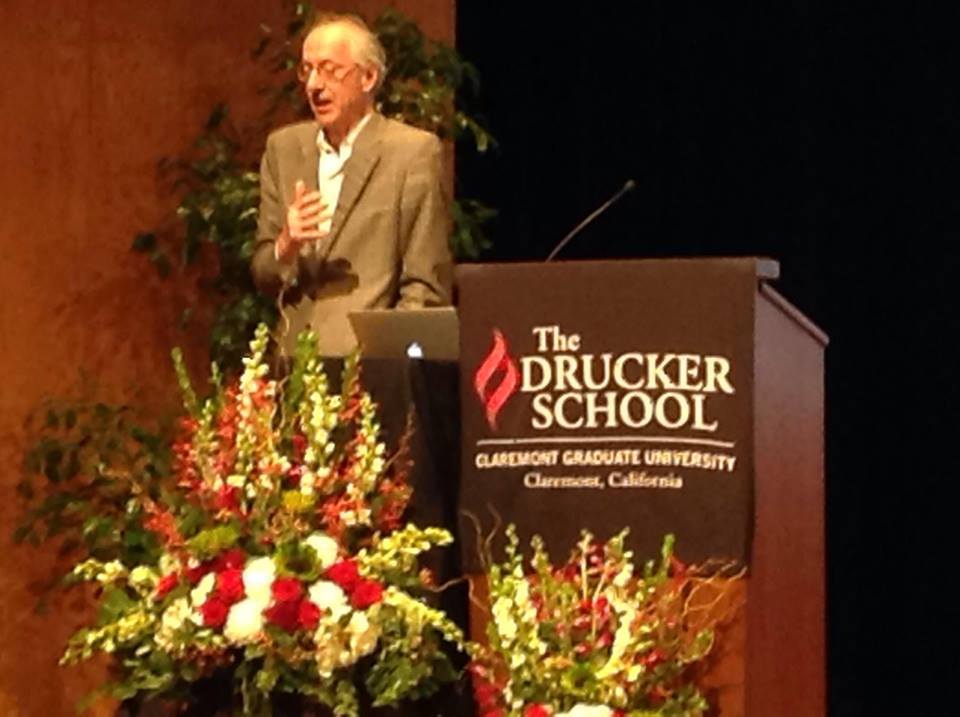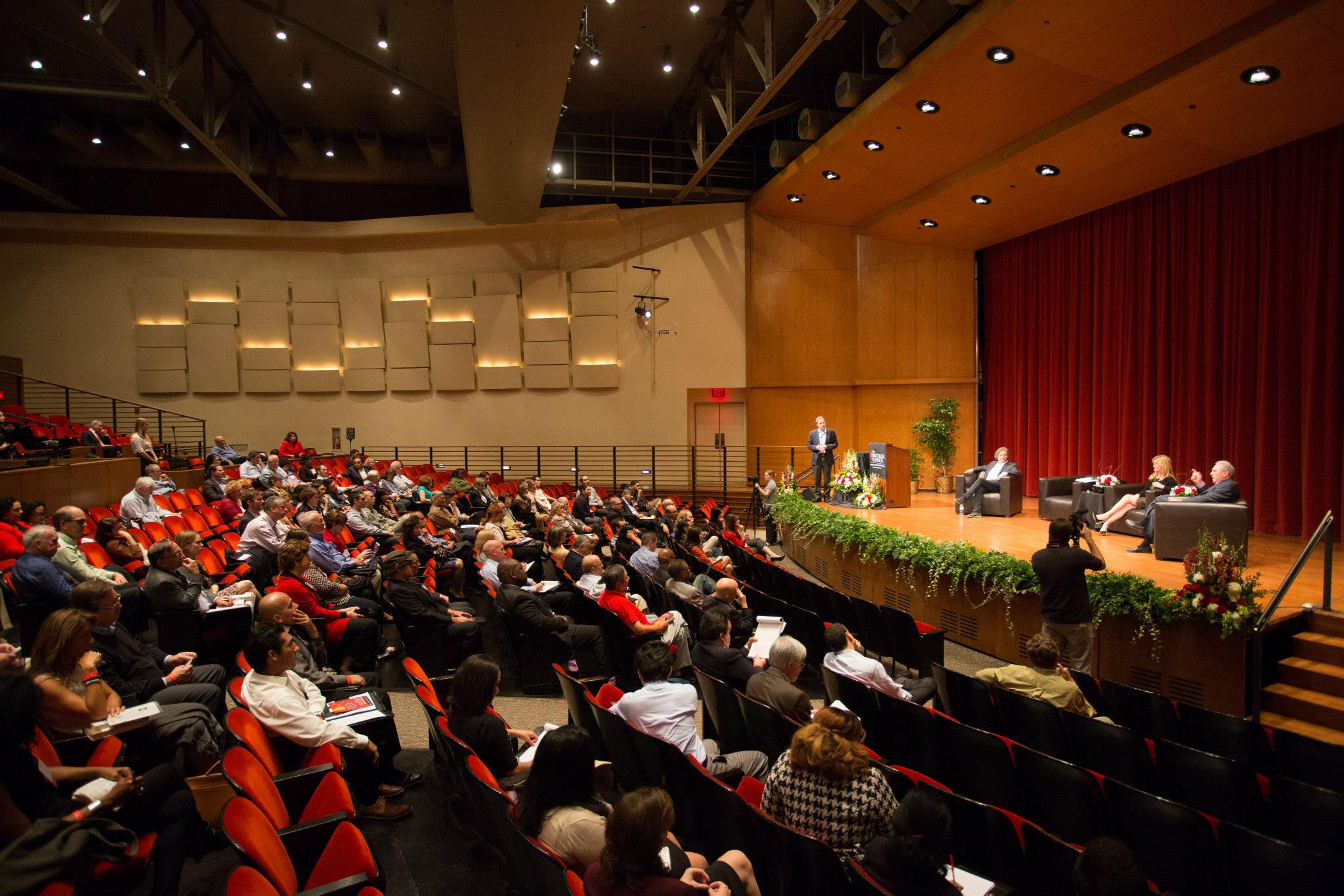Last week I wrote about initial impressions of my time in Claremont built around Drucker Day 2013, especially about the book signing that day for Create Your Future the Peter Drucker Way, and my informal book discussion at Hagelbarger’s the day before. This year’s Drucker Day had a slightly different format from last year. In the afternoon after lunch, rather than have breakout sessions in various classrooms at the Drucker School, there was one main panel discussion, from 2:15-4:00. Both the morning keynote and afternoon panel were held in the large Garrison Theater on the Scripps College campus, across the street from the Drucker School. The day ended with a cocktail reception, under a large tent near the theater, from 4:00-6:00 (when I did my signing).

John Howkins, keynote speaker, Drucker Day, 2013
The theme of this year’s event was “The Creative Economy: Where Managers and Creatives Collaborate to Foster Innovation and Economic Value.” The keynote was delivered by John Howkins, chairman of BOP Consulting and author of a number of books, including The Creative Economy: How People Make Money From Ideas. One of the big takeaways from Drucker Day was that creativity will increasingly become the backbone for all sorts of industries, not just the media, music, films, TV or other areas that we traditionally associate with creativity. Howkins set the creative economy in historical context, and also emphasized the importance of copyright and trademarks in how this economy operates. His own work underscores its global nature, as he is based in both London and Shanghai, and frequently works around the world.
In the afternoon, Bernie Jaworski, who holds the Peter F. Drucker Chair in Management and the Liberal Arts at the Drucker School, led the panel discussion, “Leadership and Talent Development in Creative Economy Firms,” with Alan Kaye, Executive Vice President and Chief Human Resources Officer, Mattel, Inc; Kathy Mandato, Senior Vice President, Human Resources, NBC Entertainment; and Roland Deiser, who was founding Dean of DaimlerChrysler’s Corporate University, and is now a Drucker Senior Fellow at the Drucker School. This particularly addressed the role of new professionals, especially those coming out of MBA programs and other grad school settings, in the creative economy.

